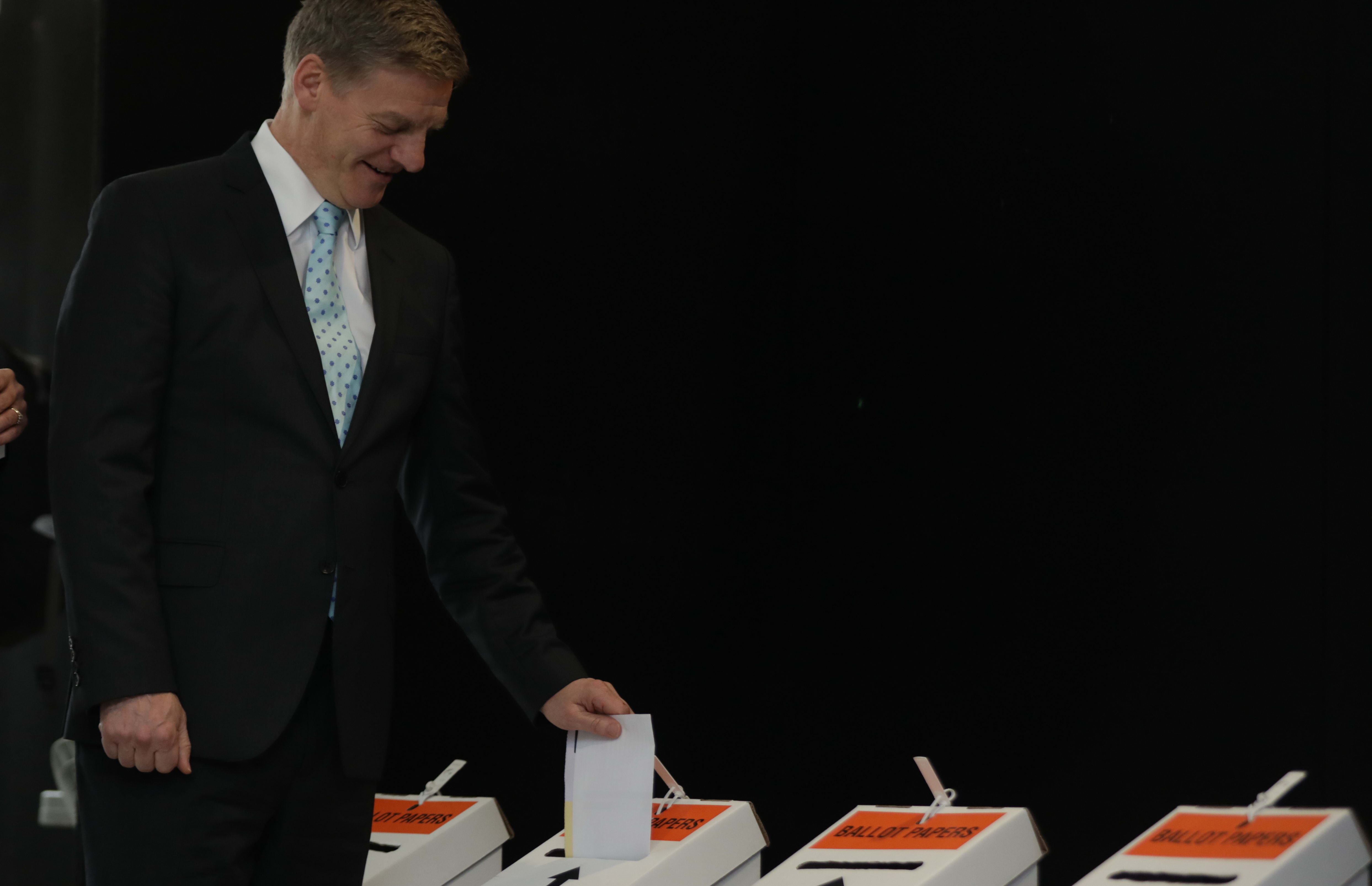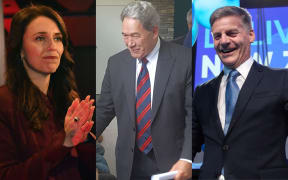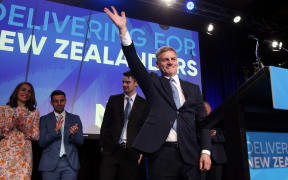By Ben Thomas
The story of the 2017 election was of a new major party leader thrust somewhat reluctantly into the role but who offered a new vision for New Zealand and energised a torpid base to get out to the polls and vote. It was the story of Bill English.

Winston Peters in the box seat probably wasn't the result Bill English hoped for when he cast his ballot Photo: RNZ / Rebekah Parsons-King
This may overstate the case. But it is clearly true that if National enters its fourth term in government with 46 percent of the popular vote, it will be because of its new leader. Despite jibes about his "baggage" from the even fresher Labour leader, Jacinda Ardern, English's straightforward approach to policy vulnerabilities such as housing and poverty marked a clear break from John Key's head in the sand denials, which had made him a polarising figure.
Nonetheless National may not find itself in government for a fourth term.
Labour's vote re-establishes it as a genuine major party, although still far behind National. Ardern, the new smiling assassin of New Zealand politics, and her party made a record number of confimed kills, knocking two of National's preferred support partners out of Parliament.
United Future effectively wound up during the campaign with the retirement of Peter Dunne after a poll showing him trailing Greg O'Connor. And Labour reached a decisive victory in its intense decade-long war on the Māori Party, driving the party that emerged out of its foreshore and seabed betrayal from Parliament.
This is a loss for the country. The Māori Party's mere existence meant government and media have had to consider the implications of any new policy or initiative for Māori. These perspectives, even with Labour's much enlarged and more powerful Māori caucus, will now be discussed out of the public eye, as internal matters within the large parties.
The surprise twist after a two month rollercoaster is the exact result that had been predicted for the past three years, prior to Ardern's ascension to the Labour leadership and talk of a Labour-Greens majority: Winston Peters and New Zealand First hold the balance of power between National and the Labour-Greens bloc.
To understand the process from here, it's necessary to get the metaphors right. Although pundits muse about National getting the "first call" from Winston Peters, that's only about as meaningful as saying National are the first photo to come up on Winston's Tinder.
Peters may have entered politics four decades ago but he has always had very modern attitudes to being courted, and neither National nor Labour will expect monogamy in his discussions over confidence and supply.
It's a fool's errand to make predictions about Peters: in the past in this position he has always gone with the biggest major party, and with the fewest support partners, which suggests National. Both times, though, he has suffered from being in a late-term government and it has ended in disaster for him. He may want the easier ride of a first term government.
National can expect to lose another seat to the left bloc once the record number of special votes are counted, perhaps two if the much anticipated "youthquake" finally arrives as a small mantelpiece-rattling tremor.
The biggest party may still be casting about for the "innovative solutions" of which English is so fond: it may look yearningly across the House at a number of MPs whose politics quite naturally fit a National government better than their own parties, or perhaps try and sort out a bare confidence and supply agreement with the Greens, in exchange for some environmental concessions.
Ben Thomas is a consultant for public affairs firm Exceltium, and a former press secretary in the John Key-led National government.



